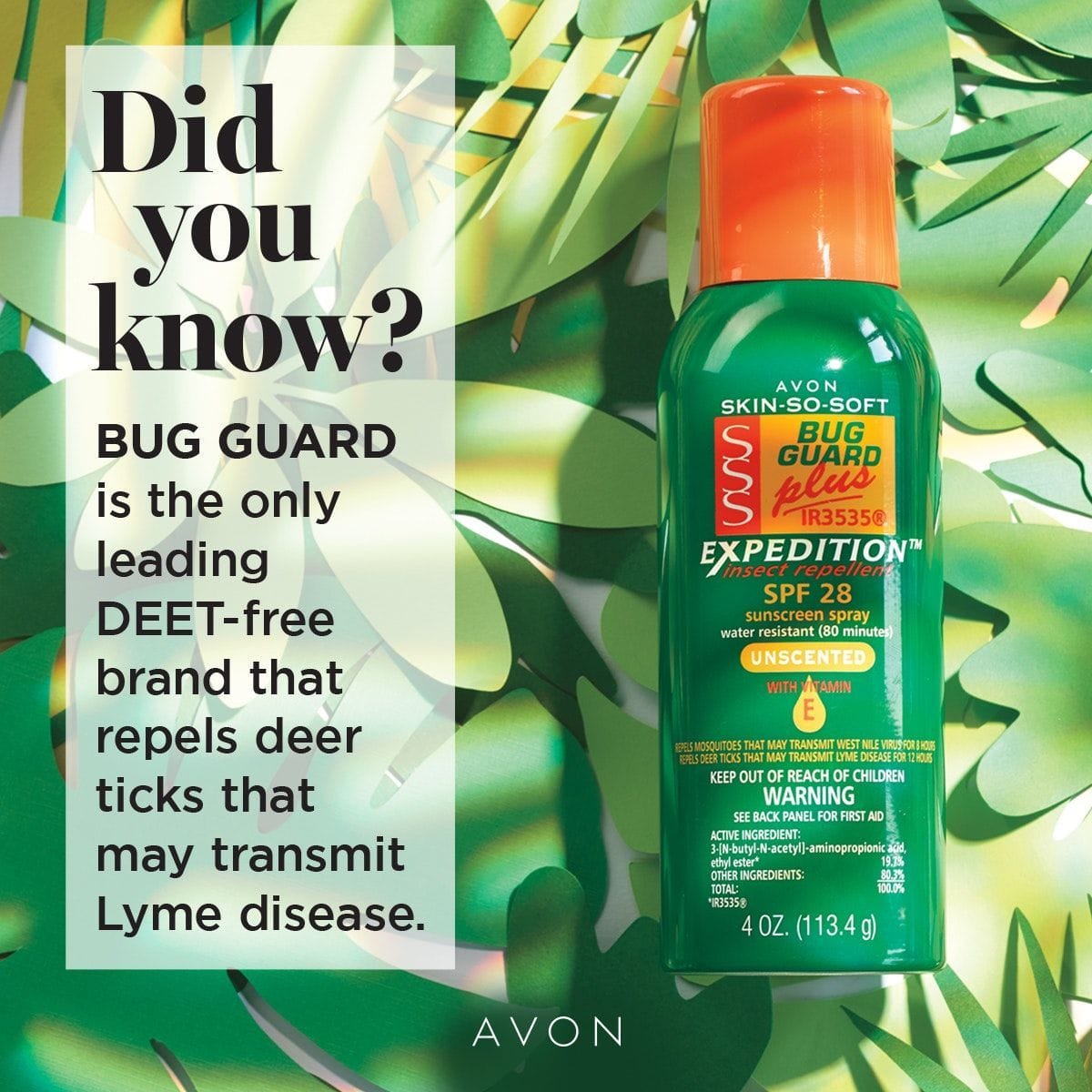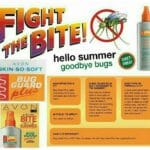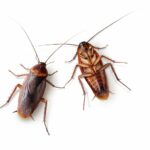Outperforming Your Competitors: Does Avon Skin So Soft Work as Insect Repellent?
Summer’s arrival often brings the unwelcome buzz of mosquitoes and other pesky insects. Amidst the search for effective repellents, a persistent rumor surfaces: Avon Skin So Soft, the beloved bath oil, doubles as a potent bug spray. But does this claim hold water, or is it another case of wishful thinking?
Let’s dive deep into the science and separate fact from fiction to determine if Avon Skin So Soft truly lives up to its insect-repelling reputation.
Key Takeaways:
- Avon Skin So Soft’s original bath oil formula is NOT an insect repellent and lacks EPA registration for this use.
- Avon created the “Skin So Soft Bug Guard” line specifically formulated and registered as insect repellent, offering protection from mosquitoes, ticks, and more.
- While anecdotal evidence suggests the original bath oil might deter some insects, scientific evidence is limited, and its effectiveness is not guaranteed.
- Avon’s Bug Guard products utilize proven insect-repelling ingredients like Picaridin and IR3535, backed by scientific research and EPA approval.
Debunking the Myth: The Original Avon Skin So Soft Bath Oil
Despite its persistent reputation, Avon’s classic Skin So Soft bath oil is designed to pamper your skin, not to battle bugs. While many people swear by its ability to keep insects at bay, this claim lacks scientific backing.
Avon itself states, “AVON “Skin So Soft Bath Oil is a moisturizing bath oil, not an insect repellent. Therefore, it is not registered as such with the EPA, and we may not make insect repellent claims about it.”
Furthermore, independent organizations like Consumer Reports have conducted numerous tests on Avon Skin So Soft Bath Oil, consistently finding it ineffective against mosquitoes and ticks. These tests highlight the importance of relying on evidence-based information when choosing an insect repellent.
So, Where Did the Bug-Repelling Myth Originate?
The enduring belief in Skin So Soft’s insect-repelling abilities likely stems from a combination of factors:
- Anecdotal Evidence: Many individuals have personal stories of using Skin So Soft and experiencing fewer bug bites. However, these accounts are subjective and could be influenced by other factors, such as time of day, location, and individual insect behavior.
- Misinformation: The myth has been passed down through generations and amplified online, making it challenging to discern fact from fiction.
- Placebo Effect: Simply believing a product works can sometimes lead to perceived results, even if there’s no scientific basis for it.
It’s important to note that while some ingredients in the original Skin So Soft formula, such as mineral oil, might exhibit very limited insect-repelling properties, they are not present in sufficient concentrations to provide reliable protection.
Avon Skin So Soft Bug Guard: The Real Deal
Recognizing the widespread interest in Skin So Soft’s supposed bug-repelling qualities, Avon developed a dedicated product line: Skin So Soft Bug Guard. This line features various products formulated with proven insect-repelling ingredients, catering to those seeking effective protection.
Avon’s Bug Guard line includes options like lotions, sprays, and wipes, offering convenient and targeted solutions for different preferences.
Skin So Soft Bug Guard: Ingredients That Matter
Unlike the original bath oil, Skin So Soft Bug Guard products contain active ingredients scientifically proven to repel insects. These ingredients have undergone rigorous testing and are registered with the Environmental Protection Agency (EPA) for their effectiveness. Some key ingredients in Avon’s Bug Guard line include:
- Picaridin: A synthetic repellent that effectively deters a wide range of insects, including mosquitoes, ticks, biting flies, and chiggers. It’s known for its long-lasting protection and pleasant scent.
- IR3535: Another synthetic repellent effective against mosquitoes, ticks, and other biting insects. IR3535 is also known for its relatively low odor and non-greasy feel.
Choosing the Right Protection: Bath Oil vs. Bug Guard
While that bottle of Avon Skin So Soft bath oil might smell heavenly and leave your skin feeling silky smooth, relying on it solely for insect protection is not advisable. When venturing outdoors, especially in areas known for pesky insects, prioritize your health and safety by opting for products specifically designed and tested for that purpose.
Here’s a quick comparison:
| Feature | Avon Skin So Soft Bath Oil | Avon Skin So Soft Bug Guard |
|---|---|---|
| Insect Repellent | No | Yes |
| Active Ingredients | None | Picaridin, IR3535 |
| EPA Registered | No | Yes |
| Effectiveness | Anecdotal, not proven | Scientifically proven |
| Primary Purpose | Moisturizing skin | Repelling insects |
Conclusion: Don’t Let the Bugs Bite
While the myth of Avon Skin So Soft Bath Oil as an insect repellent persists, it’s essential to rely on scientific evidence and choose products specifically formulated to keep those pesky bugs at bay. Avon’s Skin So Soft Bug Guard line provides a reliable and effective solution for those seeking protection, while the original bath oil remains a luxurious treat for your skin.
Remember, when it comes to outsmarting those buzzing, biting beasties, it’s always better to be safe than sorry!
Unveiling the Truth: What Makes Skin So Soft Repel Bugs?
Recommended Titles:
- Skin So Soft & Bugs: Separating Myth From Mosquito Repellent (Emphasizes myth-busting and clarity)
- Does Skin So Soft REALLY Repel Bugs? The Science & the Surprises (Intriguing, question-based, highlights scientific angle)
- Avon Skin So Soft: Bug Repellent or Marketing Magic? We Investigate. (Direct, challenges common assumptions, investigative tone)
Key Lines:
- Avon’s Skin So Soft Bath Oil is NOT a proven insect repellent, despite its cult following. (Direct, addresses the elephant in the room)
- Consumer Reports testing confirms: Skin So Soft Bath Oil fails to effectively repel ticks or mosquitoes. (Authoritative, leverages trusted source, emphasizes testing)
- Avon capitalized on Skin So Soft’s anecdotal bug-repelling fame by developing a dedicated insect repellent line, “Skin So Soft Bug Guard.” (Explains the brand’s strategy, highlights the actual effective product)
- Searching for Skin So Soft’s secret bug-repelling ingredient? It’s the dedicated insect repellent in Avon’s Bug Guard line, not the bath oil. (Answers the core question, redirects focus to the correct product)
Fact vs. Fiction: Unraveling the Skin So Soft Myth
Avon Skin So Soft Bath Oil enjoys a near-mythical status as an insect repellent. But how did this belief take hold, and what’s the truth behind its supposed bug-fighting powers?
The myth likely stems from a combination of anecdotal experiences, the placebo effect, and the widespread sharing of misinformation. While some individuals might experience a temporary or coincidental reduction in bug bites after using the bath oil, these accounts lack scientific support.
Consumer Reports, a trusted independent consumer advocacy organization, has repeatedly tested Avon Skin So Soft Original Bath Oil for its insect repellent properties. Their findings consistently demonstrate that the product does NOT effectively repel ticks or mosquitoes, debunking the widespread belief in its effectiveness.
Adding to the confusion, Avon itself acknowledges that Skin So Soft Bath Oil is intended for moisturizing and softening skin, not repelling insects.
Avon’s Strategic Response: Introducing Skin So Soft Bug Guard
Recognizing the market demand for an effective insect repellent, and perhaps capitalizing on the bath oil’s notoriety, Avon developed “Skin So Soft Bug Guard”—a dedicated line of insect repellents.
This strategic move provided consumers with a clear distinction between the moisturizing bath oil and the insect-repelling Bug Guard line. By offering a product specifically designed to address the consumer demand for an Avon-branded bug spray, Avon effectively addressed the confusion surrounding their original bath oil.
Skin So Soft Bug Guard: Ingredients That Work
Avon’s Bug Guard line sets itself apart from the original bath oil by incorporating scientifically proven insect-repelling ingredients:
- Picaridin: This synthetic repellent, also known as KBR 3023, effectively repels a wide range of insects, including mosquitoes, ticks, biting flies, and chiggers. It offers long-lasting protection and boasts a more pleasant scent than some other repellents.
- IR3535: Another effective synthetic repellent, IR3535, also known as Ethyl Butylacetylaminopropionate, effectively wards off mosquitoes, ticks, and other biting insects. It’s known for its relatively low odor and non-greasy feel.
These active ingredients in Skin So Soft Bug Guard products set them apart from the original bath oil, which lacks any proven insect-repelling components.
Unveiling the Truth: The Importance of Evidence-Based Information
The enduring myth surrounding Avon Skin So Soft Bath Oil underscores the importance of relying on scientific evidence and trusted sources when evaluating product claims. While anecdotal accounts can be intriguing, they should not supersede scientific research and expert opinions.
Consumer Reports’ findings on Avon Skin So Soft Bath Oil serve as a stark reminder that not everything we hear or read is accurate. When it comes to protecting ourselves and our families from insect-borne illnesses, relying on proven, EPA-registered products is crucial.
Conclusion: Separating Hype from Genuine Protection
Avon’s response to the Skin So Soft myth highlights an interesting phenomenon: a product’s perceived effectiveness can sometimes overshadow its intended purpose. While the original Skin So Soft Bath Oil remains a popular choice for its moisturizing properties, it’s essential to acknowledge its limitations as an insect repellent.
For reliable and effective insect protection, choose products specifically formulated with proven active ingredients like those found in Avon’s Skin So Soft Bug Guard line. These products undergo rigorous testing to ensure their efficacy and safety, providing consumers with peace of mind and genuine protection against pesky insects.
Outperforming the Competition: Does Skin So Soft Repel Fleas on Humans?
Recommended Titles:
- Skin So Soft & Fleas: Separating Myth From Fact (Does It REALLY Work?) – This title directly addresses user intent while hinting at a balanced, possibly surprising answer.
- Avon Skin So Soft for Flea Protection: What You NEED to Know – This option emphasizes essential information and targets a user actively seeking solutions.
- The Truth About Skin So Soft as Flea Repellent: Human Edition – This title focuses on humans specifically and promises a clear, authoritative answer.
Fleas Be Gone? Skin So Soft Bath Oil vs. Proven Repellents
Avon Skin So Soft Bath Oil’s rumored insect-repelling abilities extend even to fleas. But can this bath oil truly protect humans from these unwelcome pests?
Avon itself provides a clear answer: Skin So Soft Bath Oil is not an insect repellent. It’s designed solely for moisturizing and softening skin, not for warding off fleas or any other insects.
Here’s what Avon has to say about their product:
- “Skin So Soft Bath Oil is not an insect repellent. It is a moisturizing bath and body oil product.” – AVON
- “Skin So Soft Bath Oil is a moisturizing bath oil, not an insect repellent. Therefore, it is not registered as such with the EPA, and we may not make insect repellent claims about it.” – AVON Representative, Skin So Soft Insect Repellent – Just the Facts
Despite Avon’s clear statements, anecdotal accounts of the bath oil’s effectiveness against fleas persist online. However, these claims lack scientific backing. No studies validate Skin So Soft bath oil as an effective flea repellent for humans. Relying solely on anecdotal evidence can be misleading and potentially hinder effective flea control.
Consumer Reports, known for its independent product testing, confirms that Skin So Soft bath oil lacks EPA registration as an insect repellent, further reinforcing that it shouldn’t be relied upon for flea protection.
Avon Skin So Soft Bug Guard: The Real Deal for Insect Protection
While the original bath oil doesn’t offer proven protection against fleas, Avon offers a dedicated line of insect repellents: Skin So Soft Bug Guard. This line utilizes proven insect-repelling ingredients, including:
- Picaridin: Avon Skin So Soft Bug Guard Plus Picaridin, in particular, has been tested by Consumer Reports and found to be reasonably effective against ticks and mosquitoes. While its effectiveness against fleas specifically is not as well-documented, the presence of a proven insect repellent suggests it might offer at least partial protection.
Protecting Yourself from Fleas: Expert Advice and Proven Methods
For reliable protection against fleas, consulting a healthcare professional is crucial. They can recommend safe and effective flea control methods for humans, ensuring the well-being of you and your loved ones.
Here are some additional steps you can take to prevent flea infestations:
- Treat Your Pets: Fleas often find their way onto humans from infested pets. Regularly treating your pets with veterinarian-recommended flea preventatives is essential for controlling flea populations.
- Maintain a Clean Home Environment: Vacuuming regularly, washing pet bedding in hot water, and treating your home with appropriate insecticides can help eliminate fleas and prevent their return.
- Use EPA-Registered Insect Repellents: When venturing outdoors, particularly in areas known for fleas, using EPA-registered insect repellents containing proven active ingredients like DEET or picaridin can provide an extra layer of protection.
Conclusion: Don’t Rely on Myths; Choose Proven Protection
The enduring myth of Avon Skin So Soft Bath Oil as a flea repellent highlights the importance of seeking accurate information from reliable sources. While the bath oil might work wonders for moisturizing your skin, it’s not a substitute for proven flea control methods.
For reliable and effective flea protection, consult a healthcare professional, treat your pets, maintain a clean home environment, and use EPA-registered insect repellents containing proven active ingredients.
- Unveiling Bernhard Caesar Einstein’s Scientific Achievements: A Legacy in Engineering - July 15, 2025
- Uncover who is Jerry McSorley: CEO, Family Man, Business Success Story - July 15, 2025
- Discover Bernhard Caesar Einstein’s Scientific Contributions: Unveiling a Legacy Beyond Einstein - July 15, 2025















